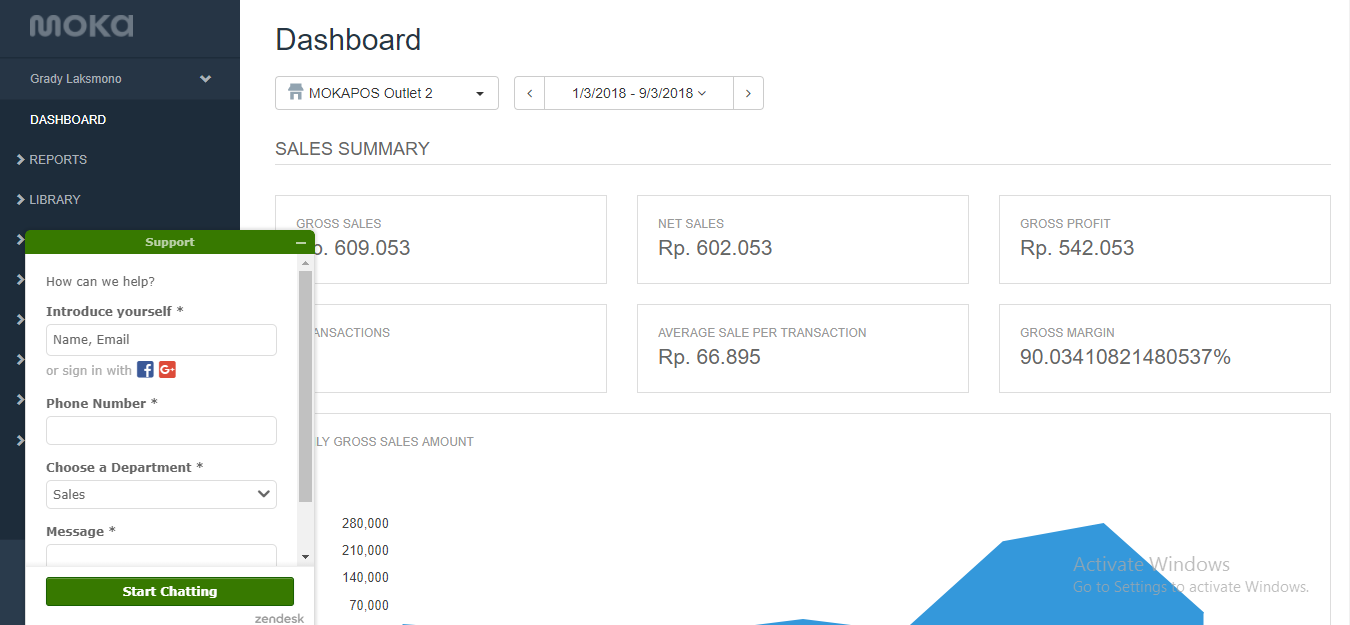What Is POS Application?
POS, or Point of Sale, is an application or system utilized by retail stores for their business activities, including cashiering, marketing, and more. POS applications are highly favored and sought after by small to large businesses because they significantly enhance efficiency, especially during busy periods, thereby accelerating service delivery.
Why Opt for POS in Retail?
Retail businesses benefit significantly from POS applications. Not only do these apps streamline operations, but they also enhance efficiency, particularly during peak times, accelerating service delivery.
Essential Aspects of a POS Application
1. Self-Introductionary
Self-introductionary here refers to the application being easily understood and learned even without training. By exploring the application, users can quickly grasp its functionality.
2. Lightweight and Fast
In unpredictable field conditions, there is no room for slow and disruptive applications. Therefore, the application must be lightweight and able to operate swiftly.
3. Offline Capability
Unexpected situations can occur at any time in business, including periods without internet access. In such cases, we must anticipate by having an application that can still function even offline.
Must-Have Modules in a POS
1. Cashier Module
The cashier module is a mandatory component and is typically found in all POS systems. This module is essential because the primary users of POS systems are retail stores. Businesses of this nature greatly benefit from a versatile cashier application.
2. Reporting dan Analytics
In today's business landscape, data is always in demand. The reporting module is often a sought-after feature in retail businesses. It enables the generation of reports and analytics that aid decision-making processes.
3. Payment Integration
The ability to accept various payment methods is a significant advantage of POS systems. In a market where numerous payment options are available, this feature proves to be invaluable.
4. Back Office
Inventory management, a crucial aspect of retail operations, is typically included in the back-office capabilities of a POS system. The ability to efficiently manage stock levels is essential for maintaining smooth business operations.
5. Employee Management
While not available in all POS systems, employee management features are highly desirable. This functionality allows businesses not only to track sales but also to manage staff effectively.
Cost of Developing a POS Application:
Development costs vary depending on the complexity and number of modules. Typically, POS development with basic modules such as cashier, inventory management, and payment integration ranges from Rp.250,000,000 to Rp.500,000,000. More complex modules will incur higher costs.
Should You Develop Your Own POS?
The decision depends on your business size and needs. For small-scale retailers with limited resources, developing a POS from scratch may not be financially viable. However, large retail chains with multiple branches may find custom POS development more cost-effective in the long run.
POS Recommendations for Small Retail Businesses
Here are recommendations for POS applications suitable for small and medium-sized businesses:
1. MOKA
Moka is currently the most popular POS application. It offers a wide range of capabilities, including cashier functions, inventory management, and employee management. Widely used by retail users, especially small stores. Pricing for MOKA POS ranges from Rp.299,000 to Rp.799,000 per month.
2. Olsera POS
Olsera POS is a premium POS solution offering affordable pricing. It specializes in retail industries such as coffee shops and laundries. Olsera also provides bundled packages with devices. Prices start from Rp.138,000 to Rp.328,000 per month, excluding devices.
3. Majoo
Majoo is a recently introduced POS application focusing on SMEs (Small and Medium Enterprises). It offers POS features commonly found in other brands. Pricing for Majoo ranges from Rp.249,000 to Rp.999,999+ per month.
4. Qasir
Qasir is a popular POS solution with a primary focus on cashier functions for businesses. As the name suggests, Qasir offers both free and paid plans, starting from Rp.699,000 to Rp.1,199,000+ per year.
Conclusion
POS applications are crucial for retail businesses, regardless of size. While large retailers may benefit from developing their own POS systems for long-term investment, small retailers are advised to opt for existing POS solutions available in the market.
Let's develop POS Application with commsult

_12_11zon.jpg)
_15_11zon.jpg)